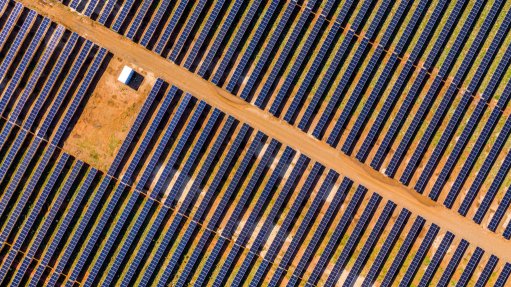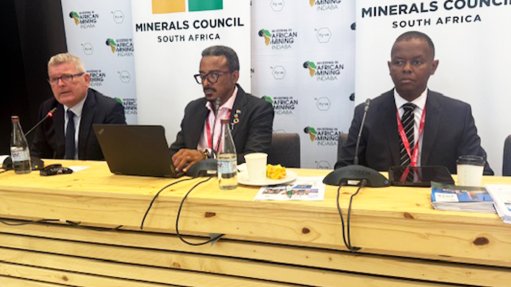African governance flatlining
Sudanese philanthropist Mo Ibrahim is someone all of us should be proud of; among other things, he uses part of his vast wealth, made from investments in telecommunications, to incentivise African heads of State to uphold good governance standards through his namesake foundation’s Leadership Prize. The foundation also tracks African countries’ progress on various governance metrics, and the latest report, for the period 2012 to 2021, makes a few worrying findings.
One of the key takeaways from the report, dubbed the Ibrahim Index of African Governance (IIAG) 2022 and released late last month, is that overall governance on the continent, which was on an upward trend from 2012 to 2019, has flatlined during the past three years.
The stagnation is largely driven by a deterioration in the Security and Rule of Law, as well as Participation, Rights and Inclusion, categories of the index, owing to an uptick in armed conflict, violence against civilians and what the report’s authors term a “democratic backsliding across growing parts of the continent”. While these worrying trends had been evident before the outbreak of Covid-19, they were exacerbated by the restrictive measures and emergency provisions that governments introduced to tackle the pandemic. The upshot was a shrinking of the civil society space, a clampdown on dissent and avoidance of democratic scrutiny.
However, African countries’ performance with respect to the IIAG’s other two categories – Human Development and Foundations for Economic Opportunity – is a cause for optimism, having improved over the ten-year period. This is particularly so for human development, with more than 90% of Africans now living in a country where progress has been made since 2012. With respect to foundations for economic opportunity, the report notes that this is the only category to have continued to make progress since 2019, despite the seismic shocks caused by the Covid-19 pandemic.
This is mostly due to improvements in infrastructure, particularly digital infrastructure, with citizens in every country on the continent now having greater access to the Internet and computers than in 2012. Moreover, all countries except South Sudan recorded an increase in mobile connectivity and communications. There were also notable improvements in energy access.
However, there are infrastructure subsectors that either stagnated or retrogressed from the beginning of 2012 to the end of 2021. The road sector is a case in point, with both the sizes of the road networks and the percentage of paved roads per capita having declined in most countries. Shipping facilities have also deteriorated and, as the report points out, if the Africa Continental Free Trade Area is to succeed in fostering intra-continental trade, this is one area where attention is needed as a matter of urgency.
The highest-ranked country in terms of overall governance is Mauritius, followed by Seychelles, Tunisia, Carbo Verde and Botswana. South Africa is sixth, while South Sudan is the lowest ranked, with Somalia second from last.
However, South Africa slips further down the packing order when it comes to the individual categories of the IIAG. It is ranked fifth with respect to foundations for economic opportunity, ninth in the human development stakes, fourth when it comes to participation, rights and inclusion, and sixth regarding security and the rule of law.
Based on the data in the IIAG 2022, Ibrahim calls on African leaders to quickly address the flatlining in governance over the past three years, lest the continent fails to reach the United Nations’ Sustainable Development Goals or the African Union’s Agenda 2063.
He also highlights the continent’s vulnerability to the impact of climate change, Covid-19 and Russia’s invasion of Ukraine. His parting shot: “More than ever, commitment to strengthen governance must be renewed.”
Article Enquiry
Email Article
Save Article
Feedback
To advertise email advertising@creamermedia.co.za or click here
Comments
Press Office
Announcements
What's On
Subscribe to improve your user experience...
Option 1 (equivalent of R125 a month):
Receive a weekly copy of Creamer Media's Engineering News & Mining Weekly magazine
(print copy for those in South Africa and e-magazine for those outside of South Africa)
Receive daily email newsletters
Access to full search results
Access archive of magazine back copies
Access to Projects in Progress
Access to ONE Research Report of your choice in PDF format
Option 2 (equivalent of R375 a month):
All benefits from Option 1
PLUS
Access to Creamer Media's Research Channel Africa for ALL Research Reports, in PDF format, on various industrial and mining sectors
including Electricity; Water; Energy Transition; Hydrogen; Roads, Rail and Ports; Coal; Gold; Platinum; Battery Metals; etc.
Already a subscriber?
Forgotten your password?
Receive weekly copy of Creamer Media's Engineering News & Mining Weekly magazine (print copy for those in South Africa and e-magazine for those outside of South Africa)
➕
Recieve daily email newsletters
➕
Access to full search results
➕
Access archive of magazine back copies
➕
Access to Projects in Progress
➕
Access to ONE Research Report of your choice in PDF format
RESEARCH CHANNEL AFRICA
R4500 (equivalent of R375 a month)
SUBSCRIBEAll benefits from Option 1
➕
Access to Creamer Media's Research Channel Africa for ALL Research Reports on various industrial and mining sectors, in PDF format, including on:
Electricity
➕
Water
➕
Energy Transition
➕
Hydrogen
➕
Roads, Rail and Ports
➕
Coal
➕
Gold
➕
Platinum
➕
Battery Metals
➕
etc.
Receive all benefits from Option 1 or Option 2 delivered to numerous people at your company
➕
Multiple User names and Passwords for simultaneous log-ins
➕
Intranet integration access to all in your organisation


















